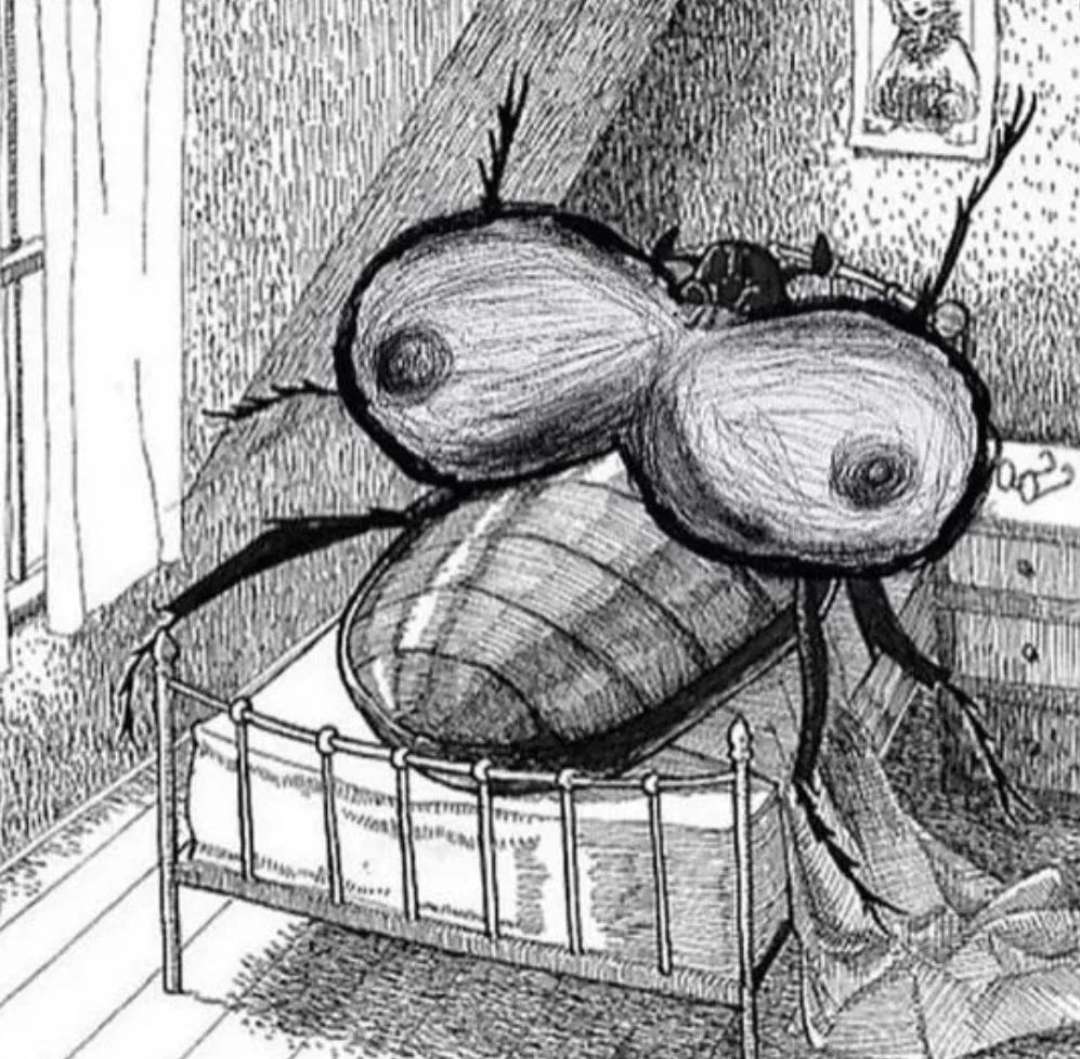Been re-reading Kafka’s The Metamorphosis and suspecting that Gregor Samsa did not actually turn into a beetle. I think it’s all in his head and that he’s just crazy and thinks he’s an insect. I think this because:
- he gets transformed into a “vermin,” which could actually be a person;
- Kafka’s father, with whom he had a Freudian relationship, frequently called people he disliked “vermin”;
- Kafka said that the “vermin” should not be illustrated at all;
- does Gregor’s family really act like they’re in the same house as a giant beetle or a crazy person?

